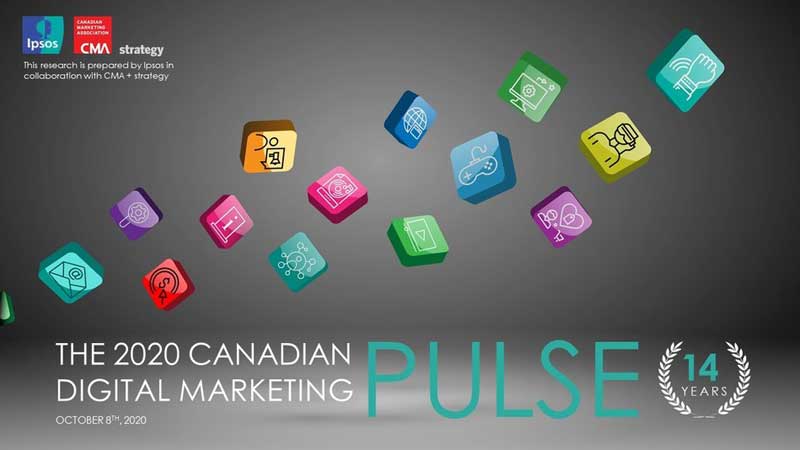COVID-19 Study shows COVID-19 caused worst year in a decade for marketing agencies
Saturday, 17 October 2020 06:30.PM
- Only 28% of marketers reported an increased reliance on their agencies in 2020, down from 50% the year before. -
With budgets tight due to COVID-19, brand marketers slashed their reliance on media and creative agencies more than any year in the past decade, bringing various advertising tactics in-house or splitting work using a hybrid model, according to the 14th annual Digital Marketing Pulse Survey released today by Ipsos Canada, the Canadian Marketing Association (CMA) and strategy magazine.
"Over the years, we've seen marketers swing between bringing tasks in-house and staffing up, to moving things out to agencies as headcount became an issue, but 2020 has been an extraordinary year, particularly since the onset of the pandemic" says Steve Levy, chief client officer for Ipsos in Canada. "For one in four marketers, COVID-19 has fundamentally changed the way that they approach digital marketing."
Email marketing (66%), websites (63%), and social media marketing (52%) top the list of tactics that brands handled internally this year. The primary reasons for taking tactics in-house were to save money and a belief that turnaround time would be shorter. In contrast, marketers' primary reason for outsourcing was access to expertise, reflecting a recognition that clients need to rely on their agency partners for specialized knowledge.
Marketers report that their budgets are shifting to digital tactics and away from "traditional media" with print bearing the brunt of this shift. There has been a decline in out-of-home tactics due to a drop in outdoor media buying since the onset of COVID-19 following two years of increasing familiarity and usage.
Social apps like Instagram, online video and search are seeing the most spending growth. However, use of influencer marketing by agencies declined sharply, possibly due to growing lack of authenticity and concerns regarding new regulations and transparency.
"Marketing expertise will be a key driver of economic recovery," said John Wiltshire, president and CEO of the CMA. "Rapid shifts identified in the Digital Marketing Pulse Survey underscore the profound impact of the pandemic on the marketing mix and provide insights on which of these changes might be permanent".
While some tactics are mainstay, there are some that the marketing community continue to hold their breaths on (i.e. Augmented Reality, Wearable Technology and Digital Audio).
For the near future, the report signals that a hybrid model will be increasingly important as it will be critical that clients and agencies build bridges between what they do to ensure they work in synergy. "This is where agencies can be powerful partners to marketers by proactively bringing their expertise to the table and showing brands how to maximize their combined skillsets," says Lisa Faktor, associate publisher of Strategy.
Agency and brand-side marketers considered 14 digital tactics and offered commentary on many related issues as part of the Digital Marketing Pulse Survey and the qualitative sessions that followed. Six in 10 Canadian marketers believe that their digital initiatives are effective, a positive trend line over the past three years. This effectiveness is largely driven by marketers' belief that these initiatives play a key role in increasing awareness.
The survey also considered consumer attitudes towards several aspects of digital marketing. Despite privacy and security concerns, most Canadians have not changed their social media habits in recent months. Where there are directional declines (fewer joining or liking a campaign, or fewer sharing a product ad or information through a social networking site), "this is more likely an expression that the younger cohorts are increasingly savvy in their use of social," says Levy.
The report was released at a CMA exclusive event presented by Ipsos and Captivate.
SOURCE: Canadian Marketing Association
- Related materials:
